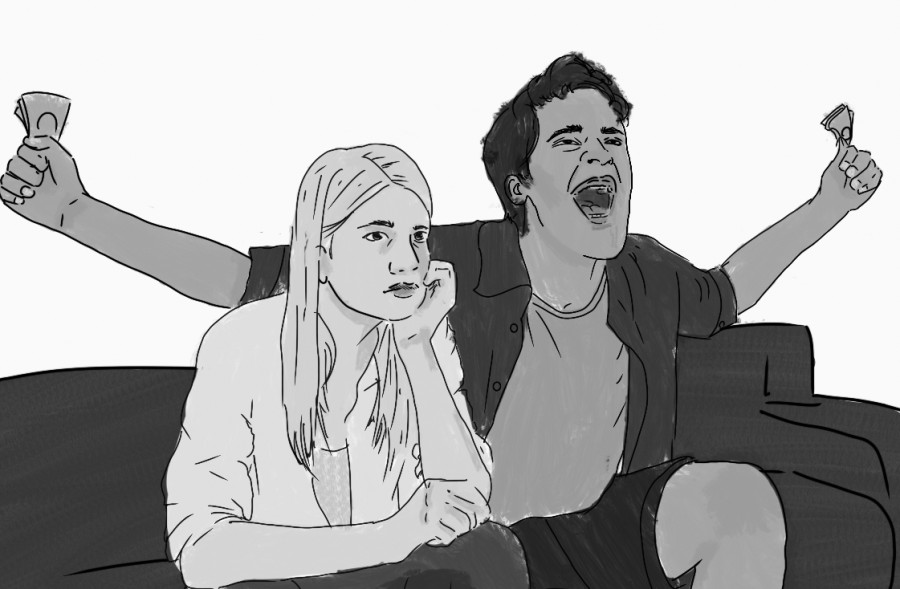Sports betting legalization causes uptick in underage participants
Online and mobile sports betting has become legal for adults in New York state aged 21 and over. However, many of those under 21 have started to bet because of its easy access; all one needs is a social security number of a person aged 21 years or older and a credit card to bet online.
March 12, 2022
* Student names have been replaced with aliases for this article in order to preserve anonymity.
Senior Jake Smith* has been sports betting with a bookie for a few years now, dealing with the risk, stress and inconvenience of unregulated betting. However, on Jan. 8, the first online betting sites went live–FanDuel, Draftkings, Caesars and BetRiver–New York state officially became host to legal online and mobile sports betting for adults 21 and over. Smith and his friends quickly switched over their betting to FanDuel. Smith explained that even with the age restriction, the accessibility for minors has exploded.
“It’s pretty much open to everyone now,” he said. “All you need is the social security number of someone over 21 and a credit card and you are set.”
Prior to the legalization of e-betting in New York, the state lost millions of dollars in tax revenue to neighboring states, such as New Jersey. However, at a time where New York is aiming to rebuild after a financial struggle caused by the pandemic, the state hopes to source funding from other means of revenue, such as sports betting. Legalizing online sports betting has proven successful in terms of state funding, leading to around $2 billion in bets, $138.5 million in sports betting revenue and $70.6 million in taxes in just the first 30 days through New York’s mobile sportsbook.
Much of the accumulated revenue can be attributed to the ease that online betting provides to its users, even those who are under 21. Sophomore Roy Jones* explained that even though using the information of a legal adult to register with a sports betting site is not necessarily legal, neither is the current alternative for minors.
“I used to bet with a bookie, but that felt really sketchy. It used to feel really illegal. Now, I just have to google DraftKings, and I can place any bet I want on a legit website. It feels much more legal even if it is not,” Jones said.
Smith described the impact that the legalization has had on the Masters student body.
“As soon as we could place bets online, it just exploded. Everyone is betting now. It spread like a pandemic.” He continued, “I started off by just placing a few smaller bets for my friends. When they made money off their first bets, they got their parents’ social security numbers and started placing bets. It’s so addicting.”
Jones explained that the widespread underage betting has been problematic for all of his friends. The large sum of money collected by the government comes from a hefty 51% tax on all profits made via online sports betting. This means that in order to profit, an individual must win twice as much as they lose.
Junior Mike Bennett* expressed his frustration upon realizing that half of his earnings were being taxed.
“I thought I had made about 200 dollars until I went to cash out after a big weekend of betting. Then I realized that I was actually down 100. It felt like such a rip off,” Bennett said.
In addition to the large tax that many are unaware of, Jones explained that his friends are betting “irresponsibly.”
“They make all of these stupid 10-leg parlays (a bet contingent on many different events occurring) that never hit. They love that they can make 100 dollars off of ten, even if it never happens,” he said.
Smith echoed Jones’ sentiment. “As teenagers we all have very addictive personalities. Once someone realizes they can win 300 dollars without doing any work, they do it again and again and again.”





